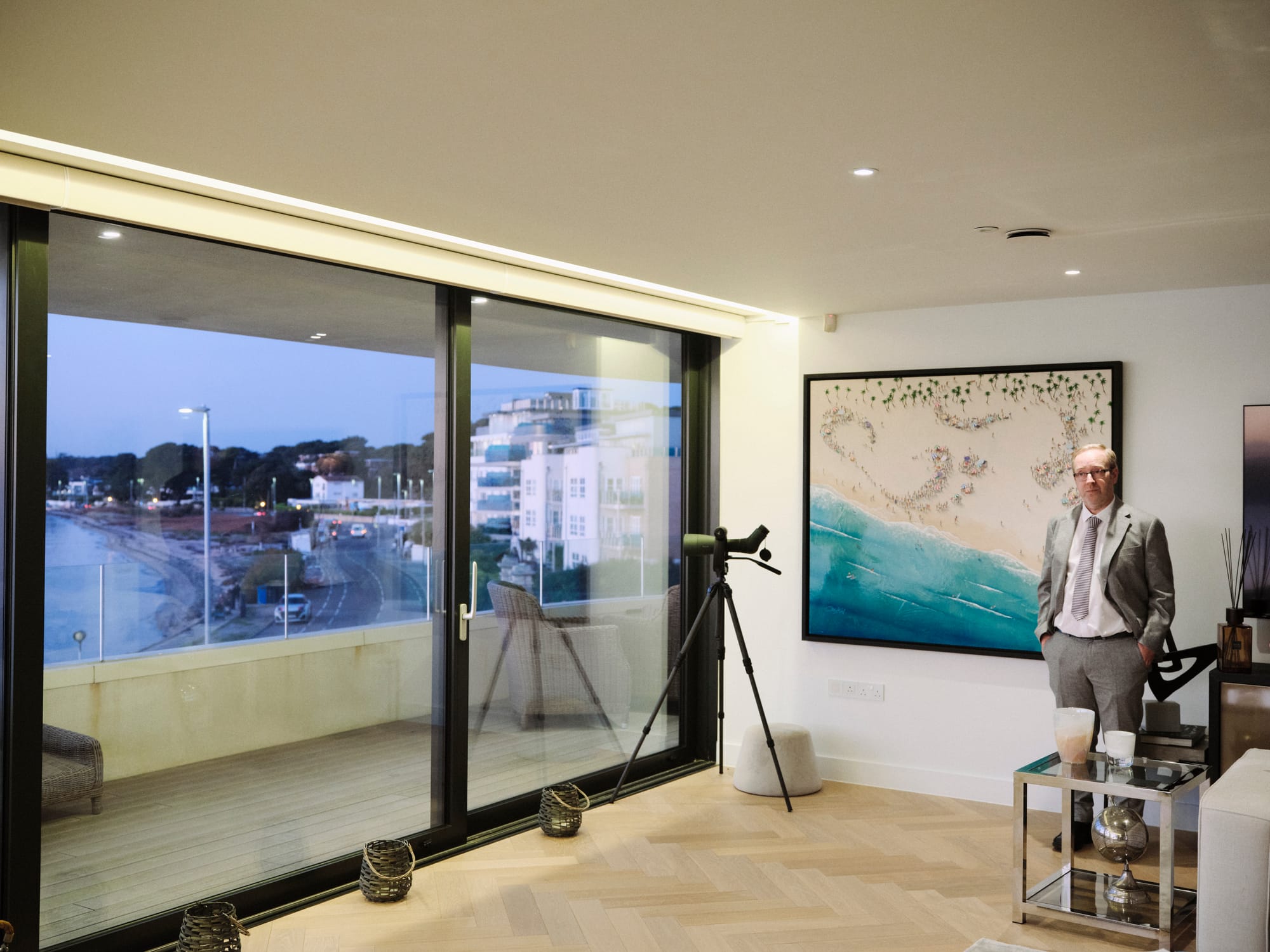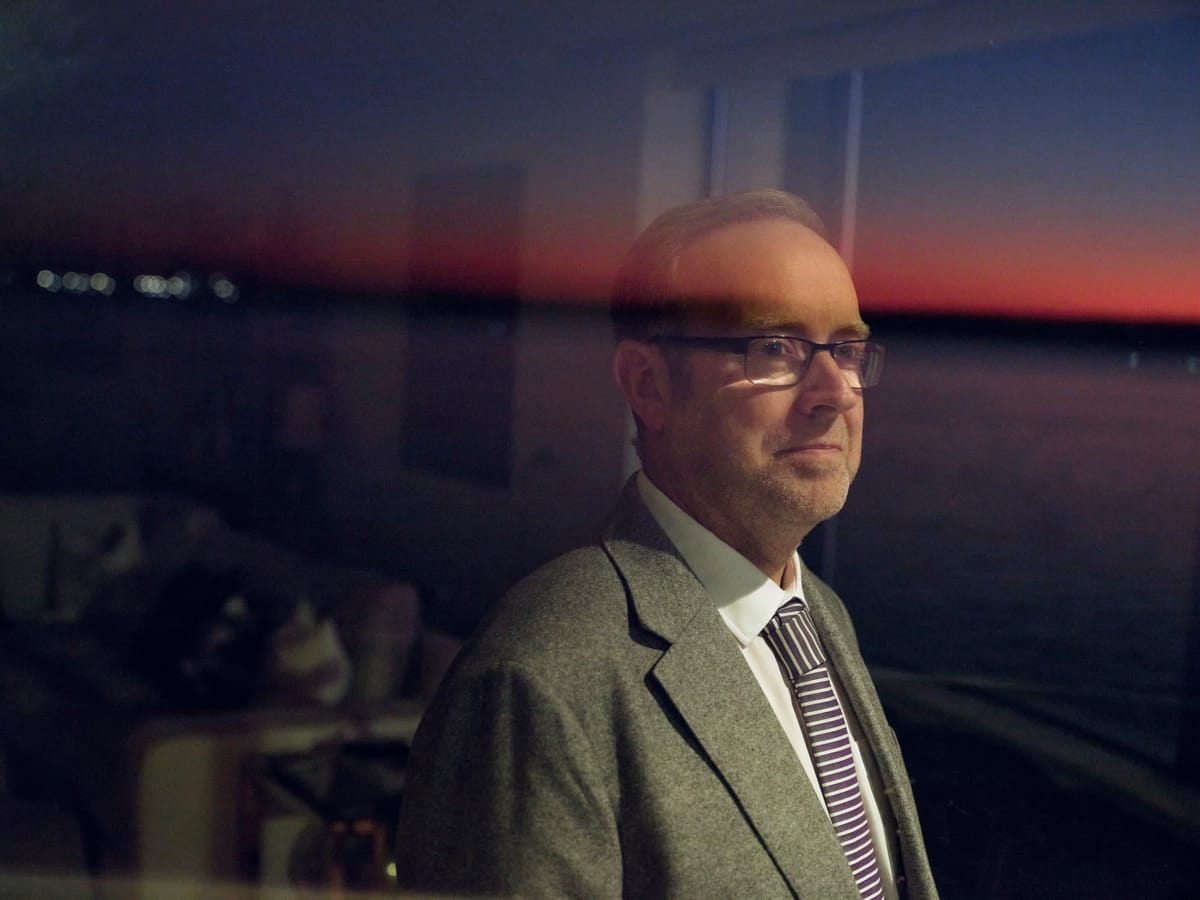In January 2008, ITV aired Piers Morgan’s visit to Sandbanks, an ultra-wealthy enclave of Dorset located on a spit of land between Bournemouth and Poole. His brief was to get “down and dirty with the new money flooding into town”, and he seemed impressed.
“It's become Britain’s Monte Carlo,” Morgan excitedly told the camera from the back of a speedboat. Later in the programme, he sat down with a local estate agent who told him he’s looking to get his “grasping little hands” on £350m worth of sales. They both laughed like crows. A few months later, the world economy collapsed.
Today, whatever giddiness Morgan found back then seems to have faded, at least during the winter months. Stalling economic growth and widening inequality have defrocked the neighbourhood’s luxury of its tabloid sheen. Now, Sandbanks feels solemn, even boring.
As I’m shown around yet another empty multimillion-pound holiday home, Robert Dunford, a realtor for Tailor Made Estate Agency, lifts his gaze from a basket of plastic apples to a pair of glass patio doors, and out to sea. He sighs, taking in a view he knows he’ll never afford.
I tell him that Sandbanks feels a bit like a dream. Robert agrees — that’s why he loves it. I clarify that dreams aren’t always good; what I mean is it doesn’t feel real. Indeed, it isn’t real. The beaches are replenished with imported sand, the palm trees are shipped from the Canary Islands, houses are bought before being immediately demolished, then replaced. Even Sandbanks’ own mythos — that, by square feet, it is the fourth most expensive neighbourhood in the world — comes via a canny marketing push by the same small-handed estate agent Piers Morgan was guffawing with. Everyone here walks around with a glazed expression. You can imagine them ambling contentedly into the waves.
“Correct,” Robert replies. “The dream is aspirational.”
Robert works for his brother, who bought Tailor Made from their mother. He used to manage ten-pin bowling alleys up and down the country. He’s okay at bowling; he used to be better. In America, bowling has been used as a barometer for the decline of social cohesion and community. In his essay, Bowling Alone, Robert D. Putnam looks at lonely men in the ten-pin alleys and sees the spiralling impacts of neoliberalism, of paranoid, individualistic aspiration.

Robert dropped bowling after his first child. He stopped smoking too. But real estate was a demanding industry. His new career involved donning suits to make himself more palatable to the rich, working on weekends and mediating succession spats. He gained weight, weight he couldn’t lose. He tried every diet going: Atkins, Cambridge, Slimming World, Weight Watchers. He’s now on the prescription weight-loss drug Mounjaro, which has, at long last, yielded results.
Robert likes the feel of carpet beneath his feet. He doesn’t drink. He’d like to live in a flat like this, if only he earned enough money and didn’t have to pay so much in tax.
Speaking of tax, a rare incursion has upset the placid equilibrium here at Sandbanks — the Budget, due to be unveiled tomorrow. Arriving at Sandbanks, I sit down with Norman Allenby-Smith and his friends from the Sandbanks Community Group. Norman seems nice enough, somewhere between Martin Sheen and a clean-shaven Colonel Sanders.
Register for free to read this article.
